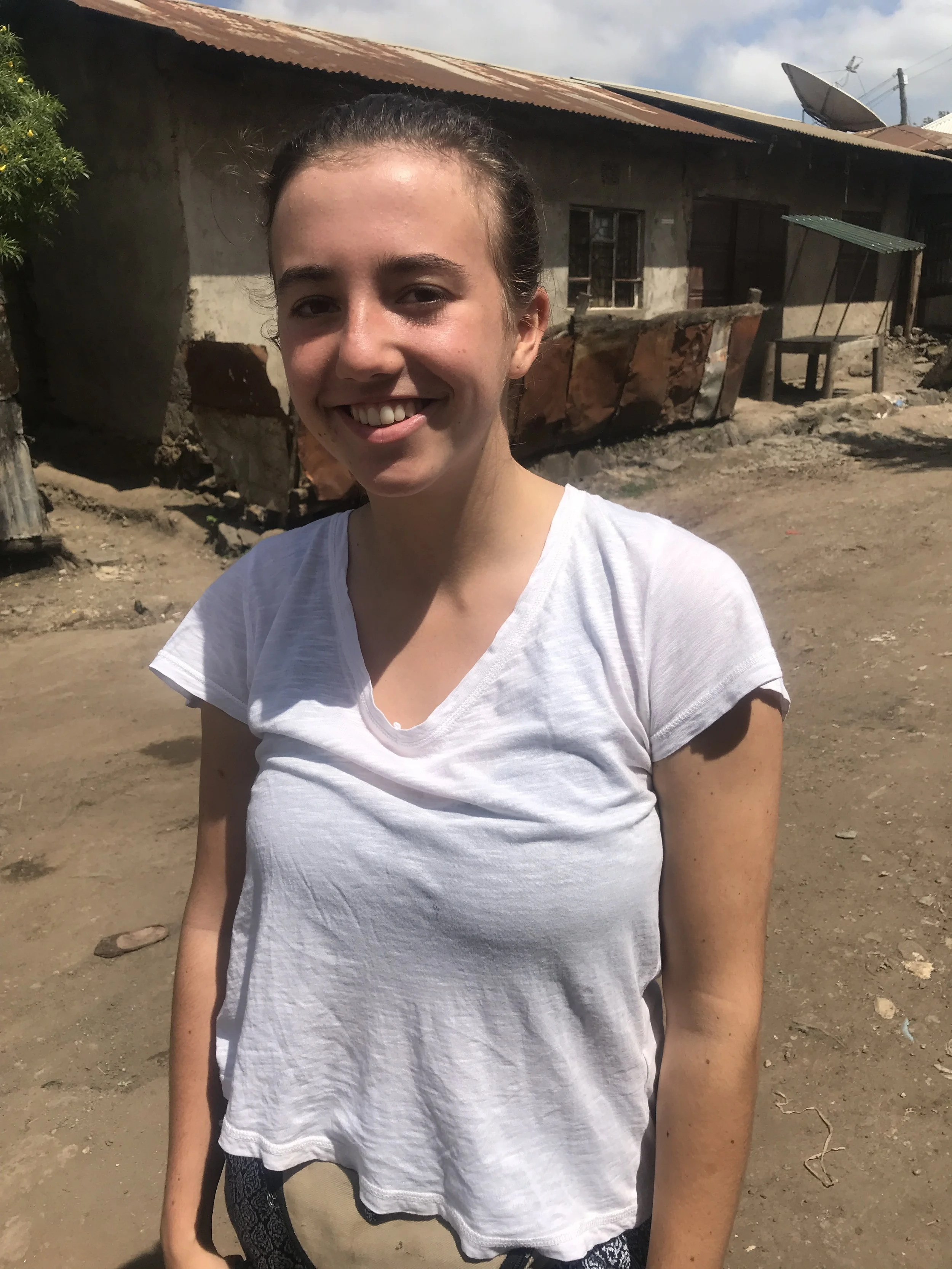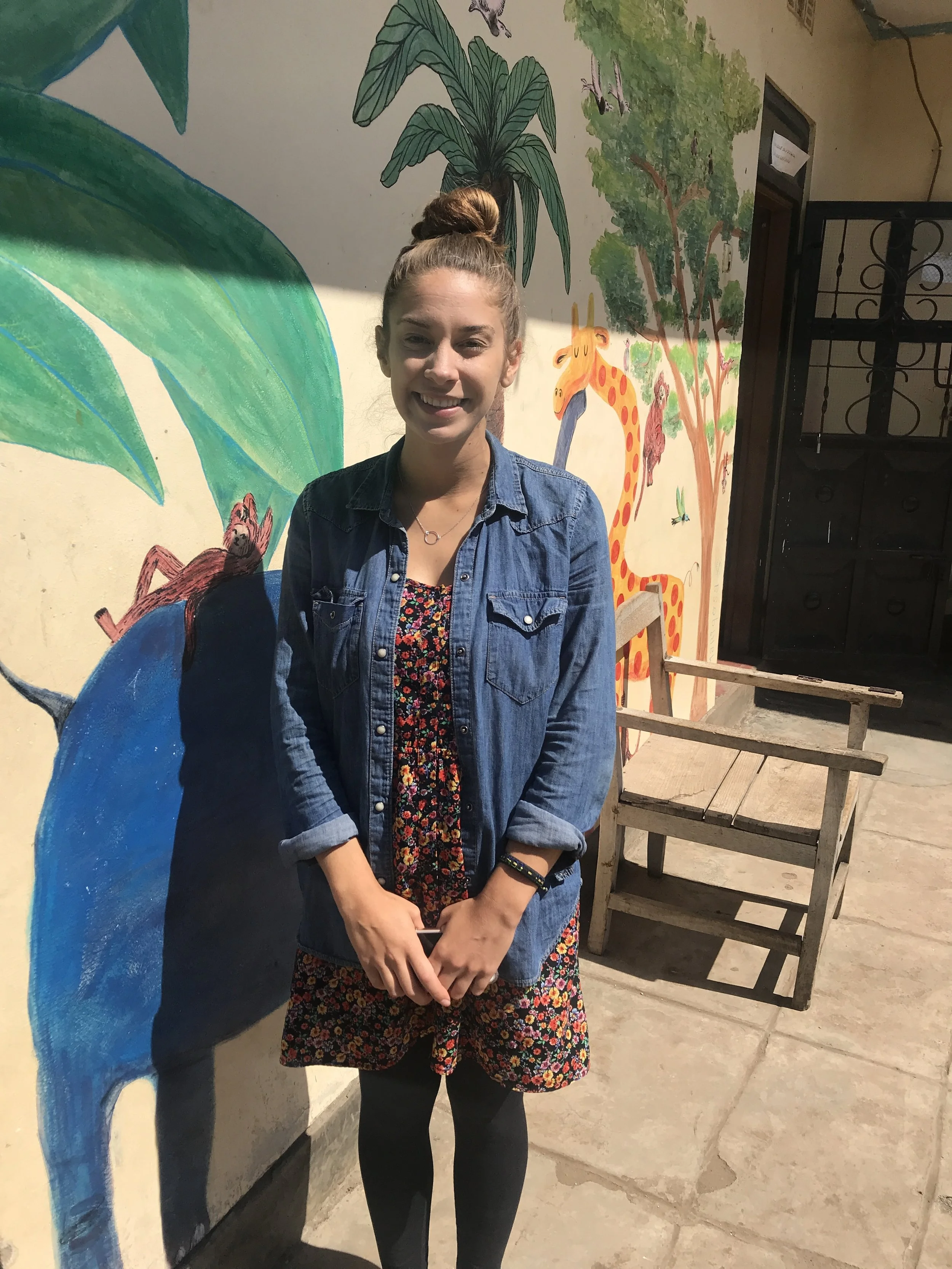One Child at a Time
Francis Folley
Contributor
“My childhood experience with school was very bad. I remember one day when I was about 12 years old, I was sent back home from my school because my parents weren’t able to pay the school fees and provide me with the other basic school necessities. I had to leave the school campus at 3:00am to travel about 170km home with my school bags on my head. I didn’t understand any of it. I was very angry. I couldn’t understand why these people were getting rid of me.
The next morning after I had walked all the way home, I went to mass at the local church where I had been an alter server when I was younger. One of the nuns saw me. I recognized her but she wasn’t someone that I had a close relationship with before. Her name was Sister Maria Virgo Lammers and she was from the Netherlands. She asked me why I wasn’t in school. I explained that I was sent home because my parents never paid the fees. She asked my why they hadn’t paid. She wanted to know if it was because they chose not to or because they didn’t have the money. I told her it was because they had no money.
From that day, this nun adopted me and paid for everything to do with my schooling. The fees, my uniform, the transportation, all the way up to my university level and Master’s degree.
When I finished my Master’s degree, I planned to start working. But first, I wanted to do something for the many Malawian children who are unable to go to school. I wanted to do something to help them since I had been the beneficiary of someone else’s generosity. I decided to start an organization with the aim of helping kids who have nobody else to support them.
From that idea the Youth Coalition for the Consolidation of Democracy was born in 2012. The primary purpose is to provide assistance to kids whose parents are not able to afford to send them to school. Even though primary school is free in Malawi, there are still fees for uniforms and supplies that many families can’t pay for. This was my way of paying back the community for what I had been given as a child. I didn’t want to see any kids get sent home from school because of a lack of money. I didn’t want to see the kids to go through the same scenario as I went through when I was young. Because when you’re a kid you don’t understand why these things happen. When there is no food you don’t understand why your parents aren’t providing it.
Currently we have 152 students we are supporting through primary and secondary school by paying their fees and any costs associated with their education. We also have two students we support in university. We have established ten free kindergartens over the past three years in the nearby villages. The Malawi education system does not offer a free kindergarten program and this gives these kids a better start. We don’t teach the classes ourselves. Instead, we identified community members to run the kindergartens. It gives them ownership and a sense of responsibility and leadership.
For my work with my organization, in 2015 I won the Malawi Child Justice Award in the High Court. This award led me to an interest in working with young offenders at the police stations, in the courts and in prison. We now go to the police stations to monitor the situation of the young offenders to ensure that they are being treated fairly. In some instances we will ask for a diversion in their case to withdraw it the formal criminal justice system and move it to an informal setting that focuses on creating a learning opportunity instead of a punishment. We also go to the courts to accompany young offenders who have no one else there to represent them.
“We realized that most of these problems are just symptoms of a greater issue.”
We work with young males in prison on a program called ‘Life Skills for Behaviour Change’ which helps them avoid returning to prison after they are released. Generally our goal is to give a voice to those who don’t have anyone to support them.
We often have some of the prisoners who we have worked with in the life skills program come to us after they are released and ask if there’s anything they can do to help. They want to offer something. We tell them that they are our agent of change. Their role is change the way things are happening in this community and to influence their friends in a positive way. We have even had some who joined us in the prisons to teach the life skills programs. That’s quite impactful.
Through our experience with the prison programs, we tried to analyze the young men who we were dealing with in the justice system. We discovered that most of them are orphans. These kids stand a high chance of getting abused, abusing others and ending up in prison.
We also examined the girls who were victims of abuse to identify a cause. Through this work, in 2017 we realized we needed to the address the issue of child marriages. In Malawi, we have the 8th highest rate in the world for child marriage. In our district in Malawi, we have one of the highest rates in the country.
We started different campaigns to end child marriages. We learned that there are many different causes. One of the biggest underlying factors is the HIV/AIDS pandemic which has left behind so many orphans. It can be difficult for these orphaned children to get support from their relatives. These relatives often force them to get married when they are young as a way of getting rid of them them. Or when the girls have no other way of getting help, they seek out marriages with men who are two or three times older than them who can provide financial support. But an unfortunate part of these marriages, is that the girls often get pregnant right away and then the husband leaves them. That is why today we have so many teen mothers who are alone. Now the young mother has a baby to support in addition to themselves, and the problem has doubled.
We go around the villages to educate people about the problems of child marriages. Sometimes the girls will come to us and tell us that they are being forced to enter into a child marriage. Other times, people in the community will come to report the marriages to us.
It’s a challenging situation. We don’t want the girls to come back to us in the future and place blame on us for ending their marriage and causing more suffering. Instead, we go and try to “suspend” the marriage until the girls reach the legal age of marriage in Malawi which is 18. Then the girls can make a legal choice for themselves as an adult.
When it’s reported that a child has gotten married, we visit the parents or relatives of this child and discuss the complications of their child getting married so young. From there, we also go to the husband’s parents, because we don’t want to create a divide between the two parties. We want them to reconcile and decide to reevaluate the marriage when the girl has reached adulthood. We also meet the husband to reassure them we are not forcing them to get a divorce, but to encourage them to separate and come back to the decision when the marriage can be legal. We try to avoid placing blame.
Last year the Obama Foundation announced that they wanted to identify the first cohort of young African leaders to participate in a mentorship program. About 10,000 Africans applied but only 200 were chosen. I was lucky to be selected. From those 200 leaders, 20 were picked for six day trip to Washington. They looked at how much each candidate had contributed in their community and narrowed the list down. Again, I was chosen. The experience was overwhelming. It felt like a dream. I had a hard time believing it was true. But it happened. Through the program and by the example the Obamas set, I was inspired to realize that there’s still more I can do. I need to do more for my country. I can do more for this community. I can do more good. I’ve already started my campaign for President of Malawi in 2024.
The vision that I have for YCD in the future is changing. Through our experience trying to solve all these problems in our community, we realized that most of these are just symptoms of a greater issue. We have so many boys in prisons. Why are they going to prison? That should be the question. On the issue of child marriages, rather than ask how we can nullify them, we should be asking why these girls are getting married in the first place. Can we solve that problem? All of these are just symptoms of something bigger. Those are the questions I want to address.”













I have learned to be able to relax and let go and not make too many plans because most of the time it doesn't work. I loved that in Belgium I had my plans and I was able to follow them. Here, you never know. You start in the morning and you have to go with the flow because anything can happen. There is no such thing as a normal day.